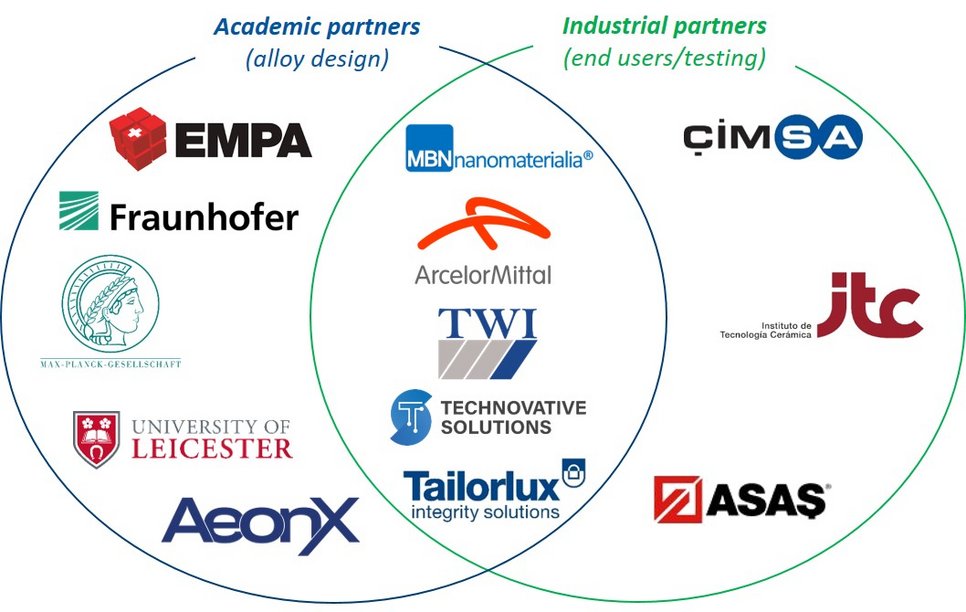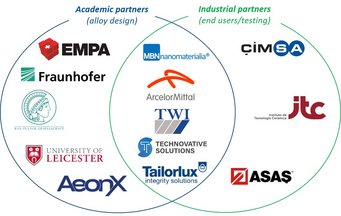FORGE: new project on protecting material surfaces in harsh environments
EU funding Horizon 2020 supports the project with almost 6 million euros for 3.5 years
The Max-Planck-Institut für Eisenforschung (MPIE) cooperates with 12 partners from academia and industry in the project FORGE to develop smart high entropy alloy coatings enhancing sustainable operation in energy intensive industries. The development will involve CALPHAD analysis, artificial intelligence methods and high-throughput experiments. The coating deposition will be carried out by means of PVD, HVAF, HVOF, cold spray and laser metal deposition.

The FORGE project aims at addressing the materials surface degradation problems in harsh environments in energy intensive industries. This project focuses on four key problems:
1. Corrosion of metallic components from acidic, basic and reactive species;
2. Hydrogen embrittlement of high-strength steels from hydrolytic and process hydrogen;
3. Erosion of process plant from particulates, and wear from friction;
4. Thermal breakdown of ceramic vessel walls due to alkaline attack at pyrolytic temperatures.
The MPIE will mainly work on machine learning and CALPHAD assisted design of compositionally complex alloys (CCAs); and on the development of CCAs with high resistance against hydrogen embrittlement. Researchers from the departments of Microstructure Physics & Alloy Design and Structure and Nano-/Micromechanics of Materials will do the needed experiments and calculations.
The project is expected to start in October 2020 in the framework of the EU programm Horizon 2020. The EU supports the project with almost 6 million euros for the 3.5 years. The MPIE's project partners are: ArcelorMittal, ASAŞ, Bayreuth AeonX AI, Çimsa, Empa, Fraunhofer Center for High Temperature Materials and Design, Instituto de Tecnología Cerámica, MBN NANOMATERIALIA S.P.A., Tailorlux, Technovative Solutions LTD, TWI, and the University of Leicester.
